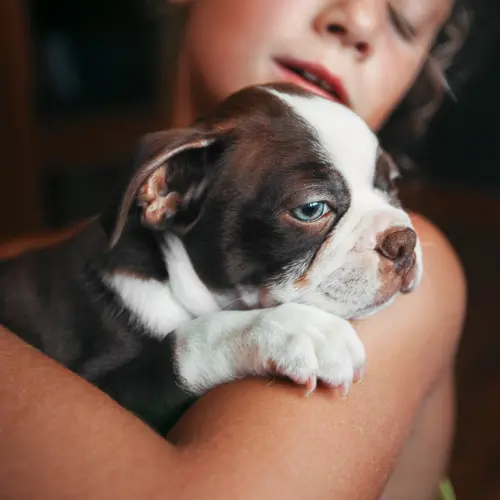What Is Bexagliflozin?
Bexagliflozin (brand name: Bexacat) is a medicine that is FDA-approved to improve the control of blood sugar and the clinical signs of diabetes in otherwise healthy cats that have not previously been treated with insulin.
Bexagliflozin is not for use in dogs.
Bexagliflozin is called a sodium-glucose cotransporter 2, or SGLT2, inhibitor. It works to reduce the amount of sugar that your cat’s kidneys absorb back into its body. The excess sugar is eliminated in the cat’s pee (urine).
Bexagliflozin is available as a prescription medicine from your veterinarian.
How Is Bexagliflozin Used?
Bexagliflozin is an oral tablet that is given directly into your cat’s mouth or with a small amount of food. It is given once daily (every 24 hours).
A missed dose should be given as soon as possible on the same day.
Always follow your veterinarian’s directions for giving medicines to animals. Remember to tell your veterinarian about any medicines, vitamins, supplements, or herbal therapies that you are giving your cat. Talk to your veterinarian before stopping any pet medicines.
What Are the Benefits of Bexagliflozin?
The following are some of the benefits of using bexagliflozin in cats.
- Minimal risk of low blood sugar events
- No dosing changes during treatment
- Once-daily dosing
- No refrigeration is needed before or after opening
- Given by mouth, eliminating the need for syringes and injections for diabetes treatment
What Follow-up Is Required With Bexagliflozin?
Your veterinarian will need to monitor your cat before and frequently after starting bexagliflozin. Veterinary follow-up visits should be on the following schedule:
- Two weeks, four weeks, and eight weeks after starting the medicine
- Every three to four months after the first month on the medicine
It is also important to keep an eye on your cat at home. Increased tiredness (lethargy), loss of appetite, and weight loss are key symptoms to watch for. Weight loss can be a positive effect in overweight cats with diabetes. But it should not be excessive. It may take several weeks before improvement is seen in your cat’s thirst, hunger, and weight.
If your cat suddenly starts vomiting or has changes to its stool (loose or diarrhea) this could also be another sign that something may not be right. You should contact your veterinarian if you have any concerns about how your cat is feeling while taking bexagliflozin.
Does Bexagliflozin Have Warnings or Side Effects?
Your veterinarian will do a thorough physical exam and medical workup before prescribing bexagliflozin. It is not recommended to use bexagliflozin in cats that have certain other conditions, such as pancreatitis (inflammation of the pancreas), liver or kidney disease, a history of ketoacidosis, or elevated beta-hydroxybutyrate (BHB) ketone levels.
In general, your cat should not be given bexagliflozin if it has any of the following:
- Lower energy level than normal
- Weight less than 6.6 pounds (3 kilograms)
- Allergy to this medicine
- Abnormal eating or drinking (anorexia or dehydration)
- Suspected or confirmed diabetic ketoacidosis (DKA), which is a potentially life-threatening complication of diabetes that requires emergency veterinary care
- Current or previous treatment with insulin
Bexagliflozin has not been evaluated in pregnant, nursing (breastfeeding), or breeding cats.
The most common side effect of bexagliflozin is loose stool or diarrhea that usually stops on its own after a short period of time. Other common side effects include increased peeing (urination) and vomiting.
Less frequent side effects include changes in appetite, increased thirst/dehydration, increased tiredness (lethargy), and changes in kidney blood values.
The most serious side effects are the development of euglycemic diabetic ketosis (eDK) and euglycemic ketoacidosis (eDKA), which are conditions where the blood turns acidic even though the blood sugar is normal. eDK and eDKA are potentially life-threatening complications of diabetes and require immediate emergency veterinary medical care.
If you suspect that your cat is having a serious side effect or may have been overdosed, call your veterinary clinic immediately. If it is outside of regular office hours, you may contact a local emergency veterinary hospital or an animal poison control center. (Note that fees may apply for emergency consultation).
You can reach the ASPCA Animal Poison Control Center at 888-426-4435 or the Pet Poison Helpline at 855-764-7661.
Does Bexagliflozin Interact With Other Medicines (Drug Interactions)?
Using multiple medicines can sometimes change how your pet’s medicines work or increase their risk for serious side effects. Always tell your veterinarian about any prescription or over-the-counter (OTC) medicines, vitamins/minerals, herbal products, and other supplements that your pet is using.
In particular, make sure that you discuss if your pet is using any of the following before using bexagliflozin.
Corticosteroids. Steroids such as dexamethasone, prednisolone, or prednisone may decrease the blood sugar-lowering effect of bexagliflozin, making it less effective.
Fluoroquinolones. Antibiotics such as marbofloxacin or pradofloxacin may decrease the blood sugar-lowering effect of bexagliflozin, making it less effective.
Insulin. Bexagliflozin should not be used in cats that are currently treated with insulin or that have previously been treated with insulin.
This may not be a complete list of medicines that can interact with bexagliflozin. Always check with your veterinarian.
Are There Safety Concerns for Pet Owners?
Bexagliflozin is not for use in humans.
Keep bexagliflozin out of the reach of children.
Wash your hands after giving bexagliflozin to your cat.
How Do I Store Bexagliflozin?
Bexagliflozin should be stored at room temperature. Bexagliflozin does not need to be refrigerated.



